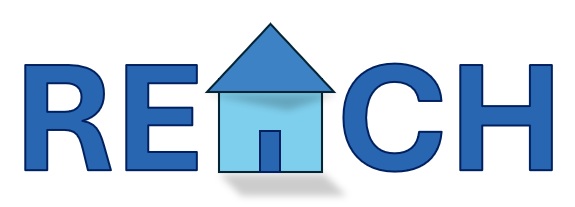REACH Program

REACH: Responsive Engagement and Assistance through Collaborative Help
Overview
REACH is a compassionate outreach and engagement program operated by the Beaufort County Human Services Department. It focuses specifically on individuals who are unsheltered—living without safe, stable housing and often disconnected from traditional human services. Whether someone is staying in a tent, a vehicle, or another place not meant for habitation, REACH is here to help them access resources and pursue their goals.
We believe that every person deserves dignity, choice, and a pathway toward stability—on their own terms.
What We Do
REACH provides consistent, compassionate, on-the-ground support to some of our community’s most vulnerable neighbors. Our work includes:
-
Building trust through supportive listening and sustained, respectful engagement
-
Connecting individuals to resources such as hygiene kits, clean clothing, identification, healthcare, and housing navigation
-
Collaborating with partners across the human services network to improve access and responsiveness for unsheltered individuals
-
Referring individuals to CONNECT, Beaufort County’s family-centered coordination model, when they express readiness to pursue longer-term goals
-
Educating the broader community about homelessness and advocating for more inclusive, effective systems of care
REACH isn’t about forcing change—it’s about showing up, being present, and walking alongside people until they’re ready to take the next step.
Who We Serve
REACH works primarily with individuals who are:
- Unsheltered – sleeping in places not meant for habitation (tents, cars, streets, etc.)
- Experiencing housing insecurity – at risk of losing housing or “couchsurfing” temporarily
- Disconnected from services – unsure where to turn for help or unable to access supports
We work in alignment with the HUD definitions of homelessness, which include:
- Category 1: Literally Homeless – individuals living in places not meant for human habitation or in emergency shelter
- Category 2: Imminent Risk of Homelessness – those who will lose housing within 14 days and have no subsequent residence
- Category 3: Homeless under other Federal statutes
- Category 4: Fleeing domestic violence
REACH prioritizes Category 1 (unsheltered homelessness) due to the extreme health and safety risks posed by ongoing exposure.
Key Partners
REACH operates within a robust and compassionate network of community collaborators. Our work would not be possible without strong partnerships across sectors, including:
- Family Promise of Beaufort County, which offers shelter, case management, and stabilization services for families with children experiencing homelessness. Their holistic approach helps families achieve sustainable independence through community-based support.
- One80 Place, the region’s HUD-funded shelter provider and lead agency for Coordinated Entry, which helps ensure that individuals experiencing homelessness are assessed, prioritized, and matched with housing resources based on their needs. REACH serves as a bridge—helping individuals enter the system, complete assessments, and stay connected throughout the process.
- United Way of the Lowcountry, through their Becky Francis Dignity Project and the Showers of Dignity mobile hygiene trailer, provides critical on-the-ground support including hot showers, laundry services, and hygiene supplies. These deployments also offer a vital point of connection between unsheltered individuals and REACH staff.
In addition, REACH proudly collaborates with:
- County and municipal law enforcement
- Local and regional government leaders
- Faith-based organizations and community ministries
- Major charitable organizations and food pantries
- Emergency and transitional shelters
- Healthcare and behavioral health providers
Together, we are building a coordinated, compassionate, and effective response to unsheltered homelessness and housing instability across Beaufort County.
REACH & CONNECT
REACH is often the first contact in someone’s journey toward stability. When individuals are ready, REACH can refer them to CONNECT, our collaborative case coordination model. CONNECT helps individuals and families set personal goals, identify success states, and coordinate services across agencies.
For unsheltered individuals, goals might include:
- Finding a medical home
- Accessing transportation or benefits
- Replacing lost documents
- Reconnecting with family
- Or, when ready, exiting homelessness
Even small steps matter. Every conversation is an opportunity to build trust.

The Point-In-Time (PIT) Count
Each year, REACH helps coordinate the HUD-required Point-in-Time Count (PIT)—a nationwide effort to count individuals who are experiencing homelessness on a single night in January.
The PIT Count:
- Helps communities understand local trends in unsheltered and sheltered homelessness
- Guides funding and policy decisions by demonstrating need
- Is required by HUD to maintain access to key housing and homelessness funding streams
- Raises public awareness and engages volunteers and professionals alike in service to our neighbors
We need your help. If you care about housing insecurity and want to support solutions, volunteering for the PIT Count is one of the most powerful ways to take action. [Click here to learn how to participate.]
How You Can Help
REACH is actively identifying grants, donations, and funding sources to supply:
- Hygiene kits and first aid supplies
- Clean clothing, socks, and blankets
- Non-perishable food and water
- Bus passes, prepaid phones, and essential gear
Your support helps us build relationships, meet basic needs, and stand ready when someone says, “I’m ready for something different.”
Let’s Talk: Community Education & Engagement
Understanding homelessness means looking beyond myths and stereotypes. The REACH team is available to speak with:
- Schools and universities
- Faith communities
- Local businesses and civic groups
- Nonprofits and government partners
We welcome opportunities to educate, share stories, and work together to build a more compassionate, connected Beaufort County.
Reach out to schedule a conversation with us.